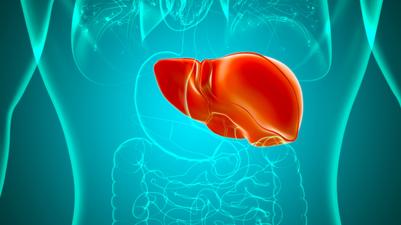Disease name: Phenylketonuria
ICD-10 Disease Code: E70.0 Classical phenylketonuria
ICD-10 Disease Group: E70- Disorders of aromatic amino-acid metabolism
General description:Phenylketonuria (PKU) is an inherited metabolic disorder caused by an absence or deficiency of the enzyme phenylalanine hydroxylase (PAH). The disorder is easily detectable via routine newborn screening and treatment usually begins immediately.
PAH is responsible for processing the enzyme phenylalanine, one of the amino acids vital for normal growth and development. In individuals with PKU, PAH fails to convert phenylalanine into tyrosine leading to an accumulation of toxic phenylalanine in the blood and brain. The direct toxic effect of phenylalanine can lead to severe intellectual disability and other symptoms.
Mutations:PKU is caused by mutations in the PAH gene. Currently, over 300 different mutations have been identified within PAH. The different mutations result in varying degrees of PAH enzymatic activity and therefore varying degrees of phenylalanine toxicity.
PKU is inherited in an autosomal-recessive pattern, meaning that individuals with the disorder inherit the mutation from both parents.
Disease frequency:The exact disease frequency is unknown but is estimated to be about 1 in every 15,000 births.
Symptoms:PKU is characterised in untreated patients by severe intellectual disability and neuropsychiatric complications.
At birth, individuals with PKU typically appear normal. If detected and treated within the first few days after birth, symptoms may never develop.
Untreated patients may become weak and feed poorly following the days after birth. After just a few months, developmental delay may be detectable. Other symptoms include vomiting, irritability, eczema, seizures and tremors. Untreated patients may exhibit behavioural or social problems, as well as motor dysfunction and stunted growth. Untreated individuals often develop permanent reduced ability for cognitive function and motor skills. Another less common symptom is depression, resulting from reduced levels of serotonin and dopamine by elevated levels of phenylalanine.
Untreated patients often have fair skin and blue eyes, due to the failure to produce melanin from phenylalanine.
Treatment:Treatment begins at a very young age, once detected, to prevent intellectual decline and onset of other symptoms.
After detection at birth treatment involves management through preventing accumulation of phenylalanine in the blood and brain. This is achieved through specialised, phenylalanine-restricted diets. Treatments aim to maintain phenylalanine levels below 360 umol/L and patients can tolerate 250-350 mg of dietary phenylalanine per day. Currently, it is recommended that patients carry out lifelong maintenance of phenylalanine restriction.
There are some FDA-approved drug treatments available that target PKU. Kuvan is an oral drug that can be taken to stimulate activity of residual PAH to metabolise phenylalanine into tyrosine. In addition, Palynziq can be taken by adults with PKU. This is an injectable enzyme therapy to treat patients with unusual phenylalanine levels on current treatment.
Sources:- https://www.icd10data.com/
- https://www.orpha.net/consor/cgi-bin/index.php
- https://rarediseases.org/
- https://medlineplus.gov/genetics/
- https://www.cdc.gov/



